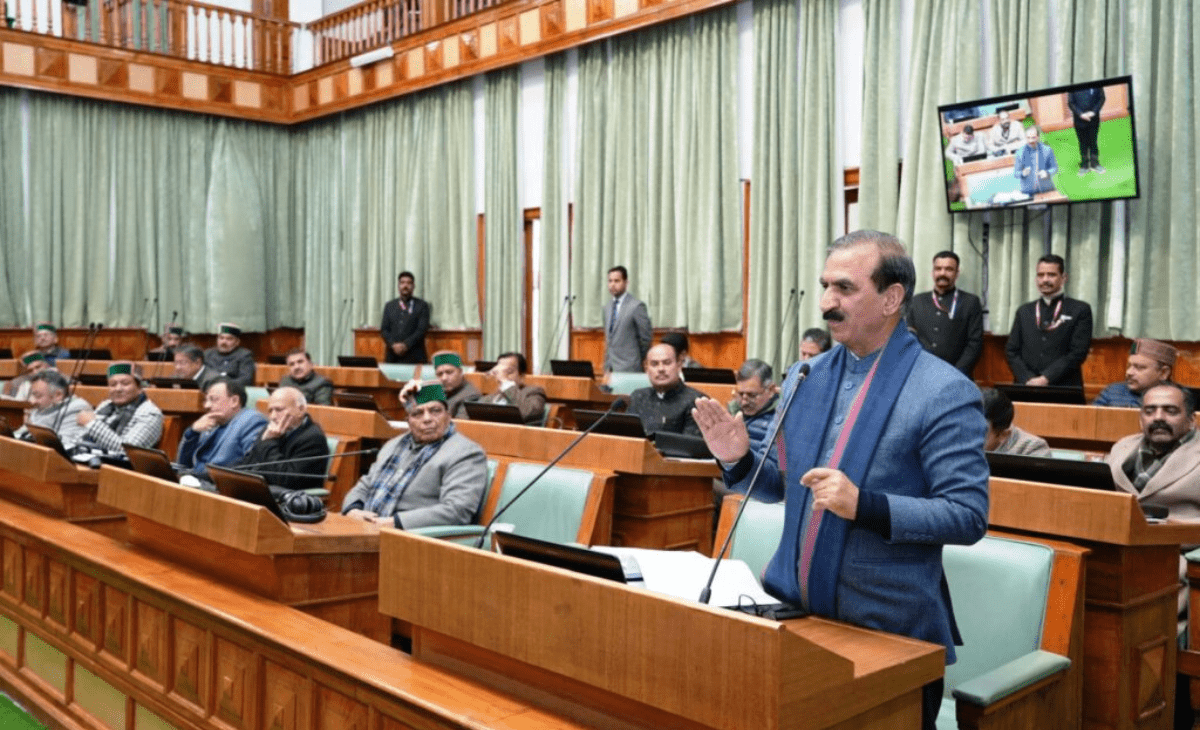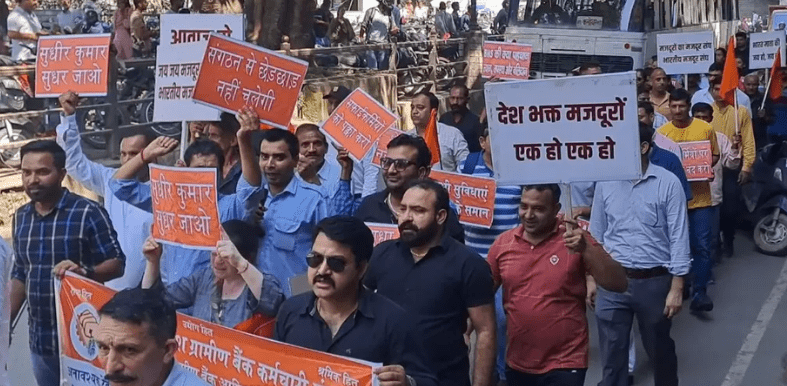Sunil Chadha
Shimla:
Will proposed reforms to relax the crucial Section 118 of the Tenancy and Land Reforms Act, 1972, which prohibits outsiders from purchasing land in Himachal Pradesh, act as a boon for the hill state or damage its topography irreversibly? This is a question being widely debated in Himachal Pradesh currently as opposition BJP and CPM has vowed to resist any dilution of what they call the “protective wall” of the hill state.
The state’s political temperature soared this week after reports that the government was preparing to amend key provisions of Section 118 under the “Ease of Doing Business” framework. The proposal, according to officials, aims to simplify land purchase and investment procedures to boost entrepreneurship and attract industries.
The Opposition has read the move as a precursor to opening the floodgates for non-Himachalis to buy land. Leader of Opposition Jai Ram Thakur accused the Congress government of “selling out the state’s interests” to business lobbies.
“From the very first day in power, Chief Minister Sukhu has been keen to hand over Himachal’s assets to his industrial friends. Diluting Section 118 will destroy our cultural and ecological heritage,” Thakur said, warning that the BJP would not allow the government to “tamper with Himachal’s identity.”
The CPM too has joined the chorus of opposition. Party state secretary Sanjay Chauhan described the proposed amendment as “anti-people and anti-farmer,” threatening a statewide agitation if the government proceeds. “Relaxing Section 118 will be disastrous for the poor, for farmers and for the fragile ecology of Himachal. We will mobilise the people against this anti-people move,” Chauhan declared.
Responding sharply to the allegations, Revenue Minister Jagat Singh Negi dismissed claims of any dilution. “No change has been made or even proposed without Assembly approval,” he told reporters in Shimla. Taking a swipe at Jai Ram Thakur, Negi said, “The Leader of Opposition seems disturbed because of internal BJP politics. There is no tampering with Section 118. The only amendment made earlier was to allow religious institutions to sell limited land — up to 150 bighas — for religious purposes, with due permission. Even the BJP supported that change back then.”
What Section 118 means for Himachal
Enacted in 1972 by Himachal’s first Chief Minister Dr YS Parmar, Section 118 of the Himachal Pradesh Tenancy and Land Reforms Act was designed to prevent outsiders from purchasing agricultural land in the state. The law restricts non-Himachali residents and non-agriculturists from acquiring land without prior permission from the state government.
The rationale was simple: to protect small farmers and the state’s limited agricultural land from being bought up by outsiders. In a hill state where cultivable land is scarce, Parmar’s policy was seen as a visionary step to preserve local ownership and prevent socio-economic displacement.
Over time, however, the same law that once safeguarded Himachali farmers has become a source of frustration for local entrepreneurs. Even Himachalis who establish companies or cooperatives are considered separate legal entities under the Act and must obtain special permissions to acquire land.
This bureaucratic rigidity, critics say, has stifled business growth, discouraged investment and driven young entrepreneurs to neighbouring states such as Uttarakhand and Haryana.
Push for reform under ‘Ease of Doing Business’
The Revenue Department has reportedly submitted a proposal to the state Cabinet recommending procedural reforms to make land acquisition less cumbersome for genuine investors. Among the proposed changes are:
• Empowering Deputy Commissioners to approve land purchase cases instead of routing them through the state Secretariat.
• Allowing a longer window for land utilisation before reversion to the government.
• Substituting penalties for non-utilisation in place of outright land confiscation.
• Creating a single-window clearance system for land purchase and construction.
“We are not selling the state but securing its economic future. Land is not changing hands freely, only the process is being simplified so that Himachali youth can start ventures without endless paperwork,” a senior Congress leader said.
Fears of ecological and social fallout
Despite the government’s assurances, several environmentalists, farmers’ unions and retired officials have sounded alarms over the potential fallout of easing restrictions. Critics argue that even a minor relaxation could open the floodgates for speculative buying, inflating land prices and jeopardising Himachal’s delicate ecology.
“This law is not just about land but preserving the demographic and cultural integrity of the state. Once the door opens, even slightly, outside investors will pour in and local farmers will be the first to lose,” said a former revenue officer who served during the 1980s.
Experts also warn that commercial expansion could trigger deforestation, strain water resources and alter settlement patterns in the hill districts. They cite the example of towns like Solan and Dharamshala, where unregulated construction has already tested infrastructure limits.
Between protection and progress
The government maintains that the “spirit” of Section 118 will remain untouched while addressing procedural hurdles that impede development. “We are committed to protecting the interests of Himachalis,” Negi reiterated.
But for many residents, the larger question persists — can Himachal modernise without compromising its roots? For some, the proposed changes represent a long-overdue shift toward economic self-reliance. For others, they threaten to erode the very foundation on which the state’s identity rests.






